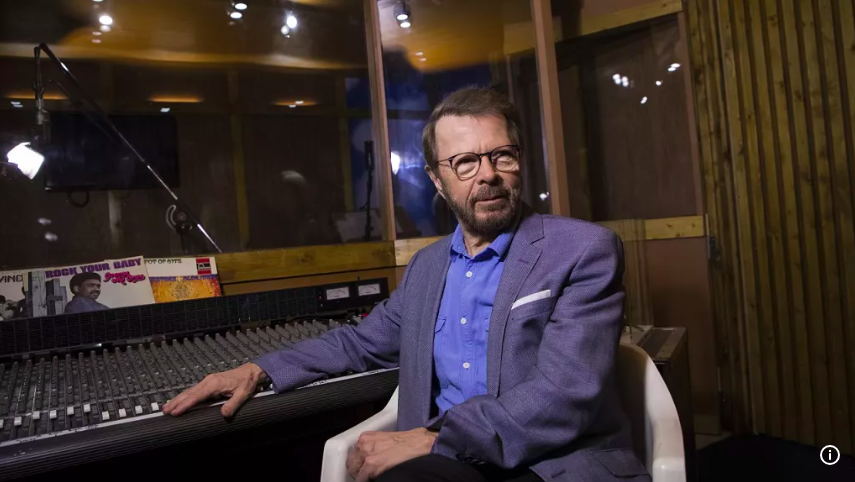"‘Thanks for the Copyright?’ ABBA’s Björn Warns Ulvaeus Criticises Weak Protections in EU AI Code"

Creative Rights vs. Big Tech: EU’s AI Code of Practice Caught in the Crossfire
As the European Union races to position itself as a global leader in artificial intelligence regulation, its proposed Code of Practice on General Purpose AI (GPAI) has become a lightning rod for criticism—from both US tech giants and European creators. The controversy highlights a growing divide between the push for innovation and the protection of creative rights in the digital age.
This week, ABBA frontman and long-time creative rights advocate Björn Ulvaeus added his voice to a growing chorus of concern from Europe’s creative sector. Speaking to Members of the European Parliament (MEPs) in Brussels, Ulvaeus warned that proposals “driven by Big Tech” threaten to undermine the fundamental rights of authors and creators across the continent.
“I am pro-tech,” said Ulvaeus, who also serves as President of the International Confederation of Societies of Authors and Composers (CISAC), “but I am concerned about current proposals that are being driven by the tech sector to weaken creative rights.”
Drafting the Code: A Contentious Process
The voluntary Code of Practice is being developed under the EU’s recently passed AI Act, the world’s first comprehensive regulatory framework for artificial intelligence. The Code is intended to provide guidance for companies developing large language models (LLMs)—like OpenAI’s ChatGPT—on how to comply with the new rules.
Since the Commission launched the process in September 2024, it has appointed 13 experts and held multiple plenary sessions and workshops involving around 1,000 stakeholders. But despite the participatory approach, reactions to the Code’s draft texts have been sharply divided.
Publishers and rights holders argue that the Code glosses over critical copyright concerns, particularly around how AI models are trained using vast datasets that often include copyrighted materials. Their chief demand is greater transparency: a clear requirement for AI developers to disclose what data is used in training, and whether rights holders are being fairly compensated.
Meanwhile, US Big Tech companies such as Meta have voiced the opposite concern: that the Code is overly burdensome and could stifle innovation. Meta’s global policy chief, Joel Kaplan, stated in February that the company would not sign the current version of the Code, citing unresolved issues.
Big Tech Pushback
The tension isn’t just commercial—it’s geopolitical. The US government, under Republican leadership, has increasingly pushed back against the EU’s digital regulatory agenda. In April, the U.S. Mission to the EU formally objected to the AI Code, arguing that it could undermine transatlantic tech collaboration and deter innovation.
Despite these criticisms, a senior official at the Commission’s AI Office told Euronews that US firms remain “very proactive” in the process. “There is not the sense that they are pulling back because of a change in the administration,” the official added.
Yet, there is no doubt that the Code has become a battleground where two competing visions for the future of AI are playing out—one focused on tech-driven growth, the other on creative integrity and public accountability.
Creative Sector: “AI Should Not Be Built on Theft”
Björn Ulvaeus’s comments were particularly pointed. “The argument that AI can only be achieved if copyright is weakened is false and dangerous,” he said. “AI should not be built on theft. It would be a historic abandonment of principles.”
His remarks echoed the growing frustration among European creators who feel that their work is being used to power AI systems without permission or compensation. “The EU has been a champion of creative rights. But now we see that the Code ignores calls from the creative sector for transparency,” Ulvaeus added. “What we want is for the EU to lead on AI regulation—not to backslide.”
Delays and Future Uncertainty
The next draft of the Code was due in early May, but the timeline was extended following a flood of stakeholder feedback. The European Commission now hopes to publish the revised text before the summer, as the new rules on GPAI tools are set to enter into force on August 2, 2025.
Although the Code is currently voluntary, the EU executive could choose to formalise it via an implementing act, effectively giving it legal force under the AI Act. The Act itself, which categorises AI systems based on the risk they pose to society, came into force in August 2024 and will be fully applicable by 2027.
Global Backlash Grows
Europe is not the only region grappling with how to balance innovation and creative rights. In the UK, plans to exempt AI developers from certain copyright laws sparked outrage in the artistic community. Legendary musician Sir Elton John called the move a betrayal and described the UK government as “absolute losers” for their stance on tech regulation.
Conclusion: The Battle Lines Are Drawn
The EU’s AI Code of Practice now sits at the centre of a larger struggle—between tech innovation and the preservation of human creativity. As the Commission prepares its next draft, it faces the daunting task of reconciling these conflicting interests.
Whether the final Code will protect the rights of authors and composers, or yield to the demands of global tech giants, remains to be seen. One thing is clear: the decisions made in Brussels in the coming months will help shape not just the future of AI—but the future of culture itself.
- Art
- Causes
- Crafts
- Dance
- Drinks
- Film
- Fitness
- Food
- Игры
- Gardening
- Health
- Главная
- Literature
- Music
- Networking
- Другое
- Party
- Religion
- Shopping
- Sports
- Theater
- Wellness


